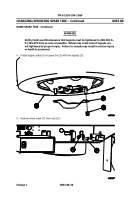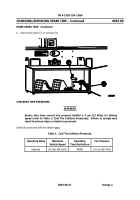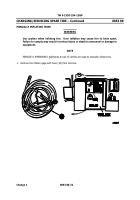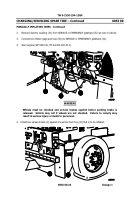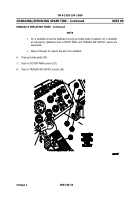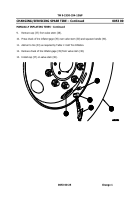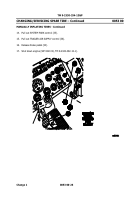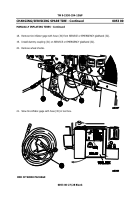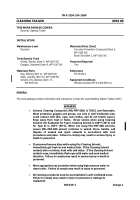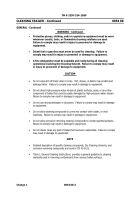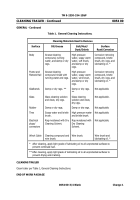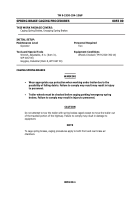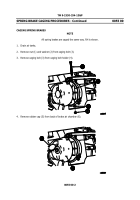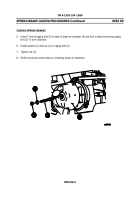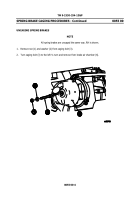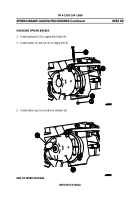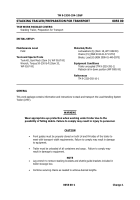TM-9-2330-334-13-P - Page 386 of 1184
TM 9-2330-334-13&P
CLEANING TRAILER - Continued
0054 00
Change 1
0054 00-2
GENERAL - Continued
WARNING - Continued
•
Protective gloves, clothing, and/or respiratory equipment must be worn
whenever caustic, toxic, or flammable cleaning solutions are used.
Failure to comply may result in injury to personnel or damage to
equipment.
•
Diesel fuel or gasoline must never be used for cleaning.
Failure to
comply may result in injury to personnel or damage to equipment.
•
A fire extinguisher must be available and ready during all cleaning
operations involving Dry Cleaning Solvent.
Failure to comply may result
in injury to personnel or damage to equipment.
CAUTION
•
Do not wipe dirt off trailer when it is dry.
Dirt, stones, or debris may scratch and
damage trailer.
Failure to comply may result in damage to equipment.
•
Do not direct high-pressure water stream at plastic surfaces, seals, or any other
component of trailer that could be easily damaged by high-pressure water stream.
Failure to comply may result in damage to equipment.
•
Do not use strong detergent or abrasives. Failure to comply may result in damage
to equipment.
•
Do not allow cleaning compounds to come into contact with rubber, or vinyl
materials.
Failure to comply may result in damage to equipment.
•
Do not allow corrosion-removing cleaning compounds to contact painted surfaces.
Failure to comply may result in damage to equipment.
•
Do not steam clean any part of trailer that has been rustproofed.
Failure to comply
may result in damage to equipment.
NOTE
•
Detailed description of specific cleaning compounds, Dry Cleaning Solvents, and
corrosion-removing compounds are found in TB 43-0213.
•
Table 1, General Cleaning Instructions, provides a general guideline to cleaning
materials used in removing contaminants from various trailer surfaces.
Back to Top

